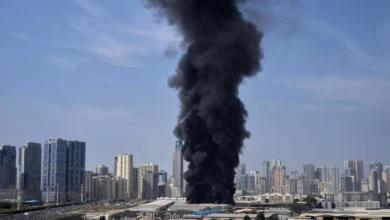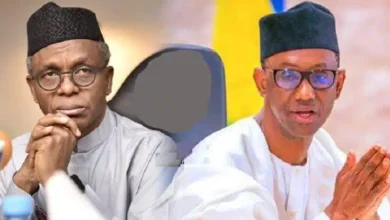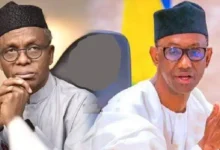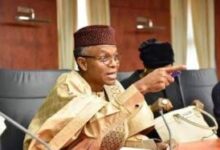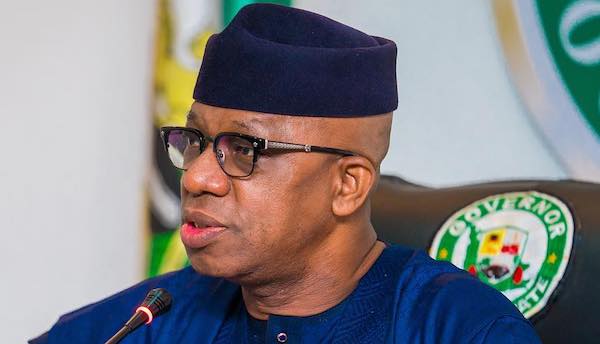APC Convention: How APC finally got to the bridge
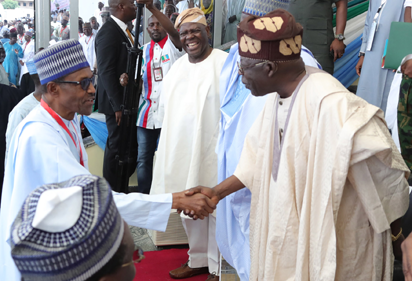
The aura and excitement that shadowed Saturday’s convention of the All Progressives Congress (APC) was understandably infectious. Vanguard has reported.
This is understandable. The ruling party, after dithering procrastination, finally braved the odds to summon a convention.
The APC had been the object of mockery by some of its adherents and the opposition Peoples Democratic Party, PDP, over its failure to hold statutory meetings.
By the provisions of its constitution, the party is supposed to hold a national convention every two years, but none has been held since the December 2014 convention that produced General Muhammadu Buhari as the party’s candidate for the 2015 presidential election.
Even more, regular meetings of the party’s organs – such as the National Executive Committee, NEC – which are supposed to hold every quarter were not held.
Reflective of the seeming stupor of the party’s operational organs was the fact that more than five years after the party came into existence that it is yet to constitute a Board of Trustees, BoT, as provided for in its constitution. Funny, however, some members claim to be of the BoT.
The BoT, which is expected to be made up of grandees and men and women with political experience, should ordinarily be the conscience of the party that should adjudicate in serious crises affecting it.
When one of the founding fathers of the party, Atiku Abubakar, exited last year, he pointed at the lack of consultations as one of his major reasons for taking his leave.
A former Speaker of the House of Representatives, Alhaji Ghali Umar Na‘Abba, lamenting the lack of consultations within the party in an interview with AIT monitored by Sunday Vanguard in August, 2017 said: “The system is breaking down because (this) government doesn’t feel obliged to be accountable to the party that brought it to power whereas at the same time they are demanding accountability from all institutions of government. It is a contradiction. Anybody who is elected must be accountable, and that is the reason I believe they don’t like the caucus meetings because they give senior party members the opportunity to advance, give their opinion and to even mingle with senior party members like the president which they ordinarily would not have an opportunity for.”
The lack of accountability has even troubled some key stakeholders in the party. Governor Nasir El-Rufai of Kaduna State, unquestionably one of the top confidants of President Muhammadu Buhari was moved to fire a secret memo to the president about two years ago in which he noted the increasing perception at that time of the party’s drift from popular acceptance.
Noting the tension that had engulfed the party as a result of the absence of meetings, El-Rufai, in the memo, had said that the party “not only failed to manage expectations of a populace that expected overnight ‘change’ but has failed to deliver even mundane matters of governance”.
“Mr. President Sir, your relationship with the national leadership of the party, both the formal (NWC) and informal (Asiwaju Bola Tinubu, Atiku Abubakar, Rabiu Musa Kwankwaso), and former Governors of ANPP, PDP (that joined us) and ACN, is perceived by most observers to be at best frosty. Many of them are aggrieved due to what they consider total absence of consultations with them on your part and those you have assigned such duties.”
Understandably, that memo was leaked, reflecting the game of subterfuge that has enveloped the scheme for ascendancy within the villa. That scheme, as El-Rufai pointed out, was directed at edging out those who worked for the emergence of Buhari as president by a cabal that the president has been unable to detach himself from.
When he left the party at the end of last year, Atiku Abubakar, the former vice-president, also alluded to the lack of consultations by both the administration and the party leadership.
It is this disconnect between the administration and party chieftains that many have cited for the wobble that has attended the administration’s implementation of the 2015 campaign manifesto – although there are those who would in another direction.
The refrain by party elders is that those running the administration were strange to the drafting of the manifesto and, hence, their hesitance or incapacity to implement the manifesto, arose therefrom. A case in point was the campaign promise to stop the practice of the Federal Executive Council, FEC, awarding contracts, a job that is by law the duty of the Public Procurement Council. However, three years into the life of the administration, FEC has continued to award contracts against the very vow of the APC Campaign before the 2015 general elections. The party has also been involved in a legion of acts that do not enjoy the benefit of legality; yet, it carries on.
Such cleavages contributed to the dissonance that characterised the party’s congresses which took place across the country prior to yesterday’s convention.
Unusually for a party in power, factions emerged in more than 24 states of the country and even in many states where the APC is in power.
It was as such not shocking that just last Wednesday, the chairman of the National Convention Planning Committee, NCPC, Governor Mohammed Baduru of Jigawa State went out to assure skeptics that the party would not postpone the convention.
“We still affirm that we will hold the Convention on June 23 and the governors are giving all the necessary support to make it successful, rancour free and that we come out of the convention stronger”, Badaru said.
Given the events of Saturday and the desperate effort by party officials to bury the divisions that preceded the convention, it could be verily said that the party may well have postponed what was said to be the evil day. It has finally gotten to the bridge.
-Written by Emmanuel Asiken, Political Editor, Vanguard published in Vanguard of Sunday June 24, 2018.


